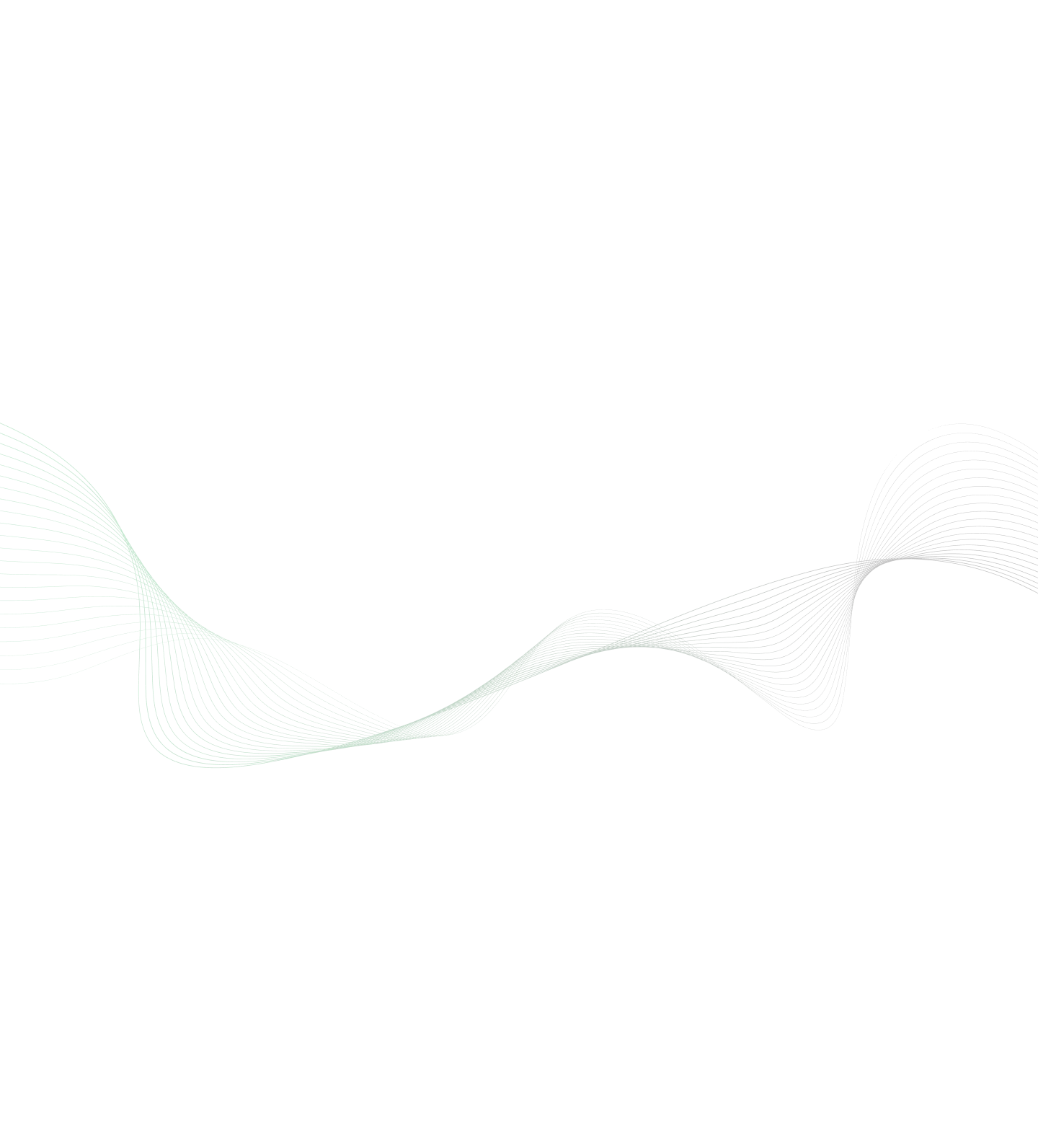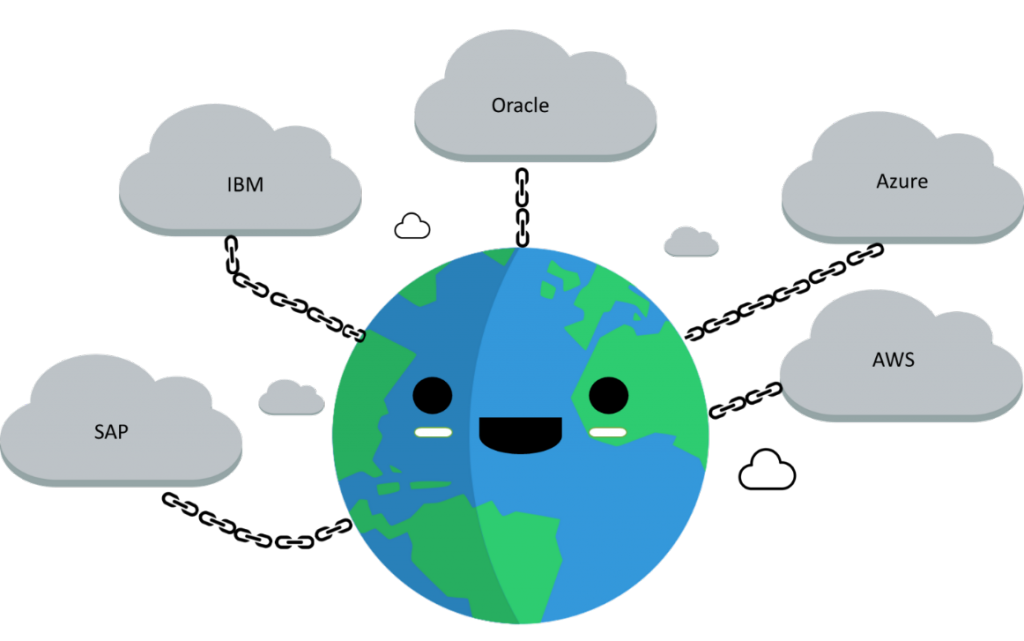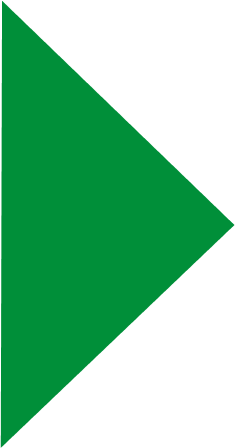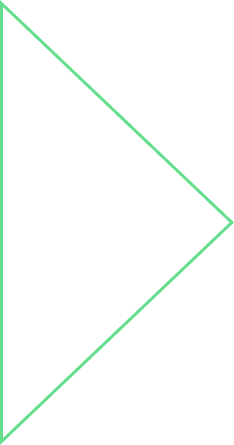What do Virtualization and Blockchain bring for businesses?
Virtualization introduced the world to cloud computing, and blockchain-based bitcoin provided users with the financial freedom to transact globally using cryptographic building blocks.
Businesses adopt cloud computing as it is the on-demand delivery of computing power, database, storage, application, and IT resources without making large upfront costs in hardware and maintenance. This results in agility, elasticity, and cost savings for organizations.
Blockchain is the technology to store transaction over a permanent distributed ledger structure bringing the potential to change the business model of various industry use cases by supporting the need for trust, provenance, transparency & consensus. According to a Gartner study, blockchain was the second most searchable term at its platform in 2017, and LinkedIn’s 2018 U.S Emerging Jobs Report shows that the demand for blockchain developer has topped the list for job roles with the highest growth has grown 33 times over the previous year.
The Power Couple or Power Struggle?
Enterprises want to explore the best possibilities of implementing blockchain solutions and streamline their operations. But how? Brace yourselves for a new service that is picking up pace. The two revolutionizing technologies blockchain and cloud computing come together to form a power couple known as “Blockchain-as-a-service.”
Blockchain is a concept that believes in recording transactions for business objects across a distributed network of systems. Cloud being a technology delivers computing resources like servers and storage over the Internet can lead to a much higher scale widespread use of blockchain concepts across major industry use cases. Blockchain-as-a-service allows companies to leverage the benefits of using the service of the blockchain platform outsourcing the development, operations, and maintenance to service providers.
Complexities in the adoption of Blockchain
Blockchain being a distributed ledger technology needs a lot of backend expertise. It calls for efforts to manage the underlying server, a network of systems to keep the distributed nodes running and in sync. This deployment of blockchain is complex and tedious owing to the scale of operations and integrations.
Blockchain-as-a-service: A Boon or Bane?
Blockchain-as-a-service abbreviated as BaaS in simpler terms is like the SaaS engagement model. It is a cloud offering that allows customers to leverage cloud-based platforms to develop and run their blockchain applications. The cloud-based service provider manages all the necessary tasks and overhead to keep the infrastructure operational, allowing them to focus more on their business. It is exciting unification in the blockchain ecosystem, indirectly contributing swift and effective blockchain adoption across businesses.
Leading Blockchain Cloud Service Providers
Currently, the world’s major cloud service providers have shown a great interest around blockchain. Amazon Web Services (AWS), Oracle, Google Cloud, and Microsoft Azure, all expressed how the distributed digital ledger technology is becoming a key ingredient for the future of the cloud. These companies have started to provide their customers with Blockchain-based cloud services to execute customer blockchain applications on their cloud platforms.
Let’s explore the leading cloud providers’ BaaS offerings:
Oracle provides “Oracle blockchain Cloud Service” – a quick and fast solution to deploy the blockchain-based network. It offers fully managed and preassembled blockchain service based on Hyperledger Fabric framework. It enables customers to connect Hyperledger fabric nodes running on premise with the cloud service. It is an enterprise-grade blockchain solution designed to provide enterprise-level features like built-in backup, enhanced security, role-based identity management, and certificate revocation management. Oracle Blockchain supports API-driven development for cloud or on-premises applications using REST API and API management service. This allows enterprises to rapidly identify and resolve issues with real-time monitoring dashboards, ledger browser, and extensive logs.
IBM is a major contributor to one of the industry’s leading blockchain platforms: Hyperledger, that provides developers with enhanced capabilities to faster development, including various industry use case templates to start with, a unique modeling language and a web-based developer environment.
The IBM Blockchain Platform is available extensively over cloud and in any geography to meet your corporate needs, including data sovereignty requirements. It is a fully integrated enterprise-ready blockchain platform designed to help business with accelerated development, democratic governance, and operation of a multi-institution business network.
AWS has given a different approach to BaaS and blockchain by giving two flavors to use blockchain as decentralized (Amazon Managed Blockchain) or centralized systems (Amazon Quantum Ledger Database) keeping the idea of immutable ledger at the core. Amazon Quantum Ledger Database is a fully managed ledger database service on the cloud. It provides a transparent, immutable, and cryptographically provable transaction record managed by a central authority over the business model. However, Amazon Managed Blockchain is a fully managed cloud service that simplifies the creation and management of scalable blockchain networks. This is achieved using popular open source frameworks Hyperledger Fabric and Ethereum.
Microsoft Azure provides a wide range of open source blockchain platforms to choose from and host over the cloud with additional tools for building surrounding solutions. It supports building Corda, Ethereum and Hyperledger Fabric based blockchain networks on Azure. Azure enables customers to automatically generate client applications for web and mobile (iOS, Android), which can be used to validate, test, and view blockchain applications
SAP’s blockchain platform sits among other emerging technologies, such as machine learning and the Internet of Things. It provides a combined set of tools with great effect for bigger industry solutions. Additionally, providing customers with Blockchain platforms as BaaS offering on frameworks like Hyperledger fabric, Quorum, & Multichain. SAP’s blockchain solution is a low-cost, low-risk way for businesses to explore and adapt the technology, to integrate it into their SAP landscapes.
Gartner published a blockchain cloud service report for the world leading public cloud service providers. The report evaluated these cloud services on many aspects, including the fundamental blockchain technologies, infrastructure, security, cloud service integration, availability, scalability, interoperability, and application development.
Next steps in Blockchain-as-a-service
Blockchain-as-a-service is a solution to manage the infrastructure needs of your blockchain applications, leaving the complex backend of your business to a reliable cloud provider. For customers interested in having complete control over their BaaS solution, infrastructure as a service (IaaS) from the cloud providers can be utilized, from where one can set up their own BaaS from scratch with a customized approach.
At Xoriant, we have closely partnered and worked with the leading industry cloud providers on various services. Xoriant has successfully delivered projects and proof of concepts on the above mentioned blockchain cloud platforms. We continue to closely observe and contribute to increasing market and innovation wave while transforming the technology called Blockchain. Talk to our experts to learn how Xoriant can help you with your digital transformation initiatives.
Check out our related PDF: Cloud-based servers











 View Previous Blog
View Previous Blog




